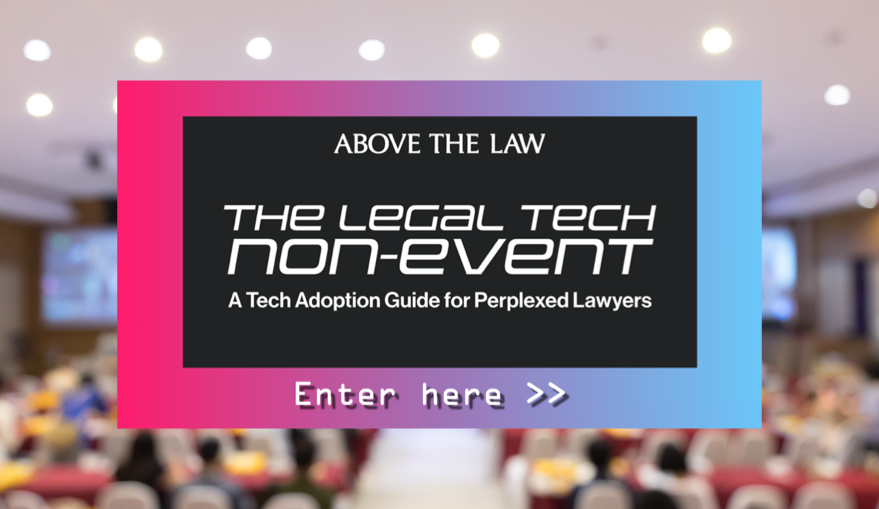
It seems like these days everyone has their own definition and understanding of AI, but are any of them correct? In this article, pioneers of the AI field, ROSS Intelligence’s AI Godfather, and the Canadian Prime Minister all weigh in to provide us with some specific definitions of what AI is.
After giving a lecture at one of the world’s oldest business schools in Paris, I remember being asked, “Andrew, how do you define artificial intelligence exactly?” While I had been asked that question countless times before, what made this time stand out so clearly was that I’d been asked that same question about eight times that day — I had started keeping count over breakfast as a joke with a colleague. That day, I resolved to put together a blog post that would clarify AI’s definition. While I’m more than a few months late, I’m doing it now, with the help of true leaders in the industry (and even Canadian Prime Minister Justin Trudeau).

ROSS Cofounders: Andrew Arruda, Pargles Dall’Oglio & Jimoh Obviagele
When we first founded ROSS Intelligence, telling people that I had cofounded an AI company would lead to excitement and confusion, but it was different than what I see now — now, it seems that everyone has become an AI expert, ready at a moment’s notice to tell me how artificial intelligence should be defined. At times, I learn new takes that are very helpful, and I appreciate each of these exchanges. Other times, I’m reminded of the Dunning–Kruger effect, which basically states that those who know the least believe they know the most, while those who know the most believe they know the least — or in the words of my high school football coach, those who say don’t know, and those who know don’t say.

My 250,000 air miles in 2017 (so far) have taught me a few things, one of which is to always wear comfortable socks and shoes, and another is that, when presenting on artificial intelligence, your audience fundamentally falls into one of two categories — academic/policy (think T14 law school, computer science faculty, ethics researchers, DA’s offices) or front-line practitioners (Am Law 100 firms, small/medium law firm lawpreneurs, in-house legal departments, ILTACon/ABA Tech Show attendees, for example).
What’s interesting is that, with both of these groups, the misconceptions are generally the same. Because of that, I always ground things by laying out the definition of artificial intelligence off the jump in my presentations. I typically define AI as the process of teaching computer systems how to do things that were thought to be human. I provide an overview of AI and then dive into different branches or applications of artificial intelligence. What I want to do with this piece, however, is combine my practical, hands-on approach with those of the best minds in the industry.
What renewed my interest in writing this piece was seeing this video by Google for their “Go North” series, which brought together AI pioneers Yoshua Bengio, entrepreneur Michele Romanow, the original deep-learning visionary Geoffrey Hinton, and Canadian Prime Minister Justin Trudeau to define AI and provide their takes on the future of artificial intelligence.
My first step, as is the case with most things since founding ROSS, was to call up my cofounder, whom I call ROSS Intelligence’s AI Godfather, Jimoh Ovbiagele. I told Jimoh I was going to get together a piece that I could send along when asked how artificial intelligence is defined and I wanted his take. He was in (I think he gets asked the question a lot, too)!
So, here, without further ado, is a collection of takes on the definition of artificial intelligence that that will shed some useful light on the subject and help folks avoid falling into any Dunning–Kruger rabbit holes in the future.
First, we have Yoshua Bengio, a pioneer in deep learning, the head of the Montreal Institute for Learning Algorithms (MILA), Professor at the Université de Montréal, member of the NIPS board, and co-founder of Element AI along with my friend Jean-Francois Gagné. Yoshua has been described by Wired Magazine as “one of the leading figures behind the rise of deep learning” — in other words, Yoshua knows what he’s talking about, and when he speaks, folks should listen. Yoshua said:

Yoshua Bengio
“[AI is] about making computers that can help us, that can do the things that humans can do but our current computers can’t.”
I really like Bengio’s quick and easy AI definition. What’s particularly great about it is that it outlines exactly how we’ve been seeing AI deployed in real-world use cases across a number of verticals. For instance, in transportation we now have self-driving cars, trucks, boats, and even farm tractor systems currently in use. Similarly, in finance, we now see algorithmic traders executing successful trades. Just five to ten years ago, these concepts were merely things we read about in sci-fi novels. Now we’re seeing computers help us do things we never before thought possible.
Next up we have Geoffrey Hinton, the original visionary behind deep learning, who splits his time between Google and the University of Toronto. Geoffrey is the most respected person in the field, and someone who was instrumental in building out the AI ecosystem at the University of Toronto (where ROSS Intelligence got its start), as well as throughout Canada, before AI exploded into the mainstream. Geoff’s work has been a massive inspiration for us at ROSS (learn more about that here). His pioneering research on deep learning and neural nets created the foundation for the current era of AI across the world. So what does Geoffrey Hinton have to say about defining AI?

Geoffrey Hinton
“Modern AI is modeled after ideas about how the brain works. The way the brain works is, you have a big network of brain cells, an input comes in and stuff goes on, and then you get an output, and the output you get depends on the connection strengths between the brain cells. If you change those connection strengths, you change the output you will get for each input.
The way AI now works is, instead of programming the computer, you show it lots of examples, it changes the connection strengths, and it learns to produce the right answers without you ever programming.”
Hinton’s definition is spot on. I particularly enjoy it because it’s a great way to describe not only artificial intelligence, but also neural networks, and it’s something I’ve already started weaving into my presentations.
When I was chatting with ROSS Intelligence’s affable CTO, Jimoh Ovbiagele, about his definition, he had this to say:

Jimoh Ovbiagele
“Humans have an amazing ability to solve problems, whether it be how to get from point A to point B, or how to capture and put into historical perspective the political zeitgeist of the United States in 2017. This ability to solve problems is what we call intelligence. Artificial intelligence is a branch of computer science aspiring to give computers the ability to solve the types of problems that we do.”
Now, as much as I wish I could also just pick up the phone to chat with Canadian Prime Minster Justin Trudeau and ask for his take (maybe one day!), in putting together this piece I had to rely on his quotes from the “Go North” video I mentioned above, just as I did for Bengio and Hinton. Prime Minister Trudeau expanded on the strict definition and stated:

Canadian Prime Minister Justin Trudeau
“Now with AI, what we’re able to do is we’re able to get the computer to test all those different branches themselves and get the program itself to see what the different consequences are, and you just have to set what is a desirable consequence or what is an undesirable consequence, and the computer will figure out rapidly all the different options and decision trees out there.”
A quote from a world leader seems like as good a place as any to wind things down . My goal with this post was to provide an easily digestible, quick overview of the state of the art with respect to AI, without getting too lost in the weeds.
Next up will be a follow-up piece that answers another question I get a lot: What does the future hold for artificial intelligence? Stay tuned!
 Andrew Arruda is a Canadian entrepreneur and lawyer. He is Chief Executive Officer and Co-Founder of the artificial intelligence company ROSS Intelligence, a leader in the legal technology industry and one of the top 100 private AI companies in the world. Arruda speaks internationally on the subjects of A.I., legal technology, and entrepreneurship and has been featured in publications such as The New York Times, BBC, Wired, CNBC, CBS, Fortune, Inc., Forbes, and the Financial Times. A member of the Forbes 30 under 30 class of 2017, as well as a 2016 TED speaker, Arruda aims to forever change the way legal services are delivered.
Andrew Arruda is a Canadian entrepreneur and lawyer. He is Chief Executive Officer and Co-Founder of the artificial intelligence company ROSS Intelligence, a leader in the legal technology industry and one of the top 100 private AI companies in the world. Arruda speaks internationally on the subjects of A.I., legal technology, and entrepreneurship and has been featured in publications such as The New York Times, BBC, Wired, CNBC, CBS, Fortune, Inc., Forbes, and the Financial Times. A member of the Forbes 30 under 30 class of 2017, as well as a 2016 TED speaker, Arruda aims to forever change the way legal services are delivered.








(hidden for your protection)
comments sponsored by
Comments are closed.